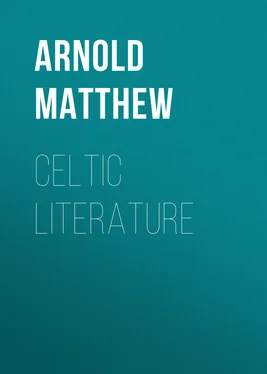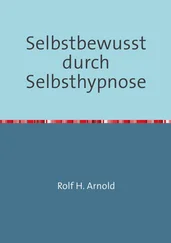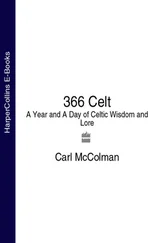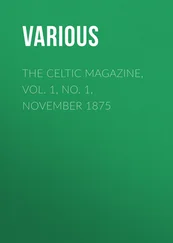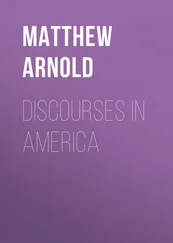Matthew Arnold - Celtic Literature
Здесь есть возможность читать онлайн «Matthew Arnold - Celtic Literature» — ознакомительный отрывок электронной книги совершенно бесплатно, а после прочтения отрывка купить полную версию. В некоторых случаях можно слушать аудио, скачать через торрент в формате fb2 и присутствует краткое содержание. Жанр: foreign_antique, Языкознание, literature_19, Культурология, на английском языке. Описание произведения, (предисловие) а так же отзывы посетителей доступны на портале библиотеки ЛибКат.
- Название:Celtic Literature
- Автор:
- Жанр:
- Год:неизвестен
- ISBN:нет данных
- Рейтинг книги:5 / 5. Голосов: 1
-
Избранное:Добавить в избранное
- Отзывы:
-
Ваша оценка:
- 100
- 1
- 2
- 3
- 4
- 5
Celtic Literature: краткое содержание, описание и аннотация
Предлагаем к чтению аннотацию, описание, краткое содержание или предисловие (зависит от того, что написал сам автор книги «Celtic Literature»). Если вы не нашли необходимую информацию о книге — напишите в комментариях, мы постараемся отыскать её.
Celtic Literature — читать онлайн ознакомительный отрывок
Ниже представлен текст книги, разбитый по страницам. Система сохранения места последней прочитанной страницы, позволяет с удобством читать онлайн бесплатно книгу «Celtic Literature», без необходимости каждый раз заново искать на чём Вы остановились. Поставьте закладку, и сможете в любой момент перейти на страницу, на которой закончили чтение.
Интервал:
Закладка:
Now certainly, in that letter, written to a Welshman and on the occasion of a Welsh festival, I enlarged on the merits of the Celtic spirit and of its works, rather than on their demerits. It would have been offensive and inhuman to do otherwise. When an acquaintance asks you to write his father’s epitaph, you do not generally seize that opportunity for saying that his father was blind of one eye, and had an unfortunate habit of not paying his tradesmen’s bills. But the weak side of Celtism and of its Celtic glorifiers, the danger against which they have to guard, is clearly indicated in that letter; and in the remarks reprinted in this volume,—remarks which were the original cause of Mr. Owen’s writing to me, and must have been fully present to his mind when he read my letter,—the shortcomings both of the Celtic race, and of the Celtic students of its literature and antiquities, are unreservedly marked, and, so far as is necessary, blamed. 2 2 See particularly pp. 9, 10, 11, of the following essay.
It was, indeed, not my purpose to make blame the chief part of what I said; for the Celts, like other people, are to be meliorated rather by developing their gifts than by chastising their defects. The wise man, says Spinoza admirably, ‘ de humana impotentia non nisi parce loqui curabit , at largiter de humana virtute seupotentia .’ But so far as condemnation of Celtic failure was needful towards preparing the way for the growth of Celtic virtue, I used condemnation.
The Times , however, prefers a shorter and sharper method of dealing with the Celts, and in a couple of leading articles, having the Chester Eisteddfod and my letter to Mr. Hugh Owen for their text, it developed with great frankness, and in its usual forcible style, its own views for the amelioration of Wales and its people. Cease to do evil , learn to do good , was the upshot of its exhortations to the Welsh; by evil , the Times understanding all things Celtic, and by good , all things English. ‘The Welsh language is the curse of Wales. Its prevalence, and the ignorance of English have excluded, and even now exclude the Welsh people from the civilisation of their English neighbours. An Eisteddfod is one of the most mischievous and selfish pieces of sentimentalism which could possibly be perpetrated. It is simply a foolish interference with the natural progress of civilisation and prosperity. If it is desirable that the Welsh should talk English, it is monstrous folly to encourage them in a loving fondness for their old language. Not only the energy and power, but the intelligence and music of Europe have come mainly from Teutonic sources, and this glorification of everything Celtic, if it were not pedantry, would be sheer ignorance. The sooner all Welsh specialities disappear from the face of the earth the better.’
And I need hardly say, that I myself, as so often happens to me at the hands of my own countrymen, was cruelly judged by the Times , and most severely treated. What I said to Mr. Owen about the spread of the English language in Wales being quite compatible with preserving and honouring the Welsh language and literature, was tersely set down as ‘arrant nonsense,’ and I was characterised as ‘a sentimentalist who talks nonsense about the children of Taliesin and Ossian, and whose dainty taste requires something more flimsy than the strong sense and sturdy morality of his fellow Englishmen.’
As I said before, I am unhappily inured to having these harsh interpretations put by my fellow Englishmen upon what I write, and I no longer cry out about it. And then, too, I have made a study of the Corinthian or leading article style, and know its exigencies, and that they are no more to be quarrelled with than the law of gravitation. So, for my part, when I read these asperities of the Times , my mind did not dwell very much on my own concern in them; but what I said to myself, as I put the newspaper down, was this: ‘ Behold England’s difficulty in governing Ireland !’
I pass by the dauntless assumption that the agricultural peasant whom we in England, without Eisteddfods, succeed in developing, is so much finer a product of civilisation than the Welsh peasant, retarded by these ‘pieces of sentimentalism.’ I will be content to suppose that our ‘strong sense and sturdy morality’ are as admirable and as universal as the Times pleases. But even supposing this, I will ask did any one ever hear of strong sense and sturdy morality being thrust down other people’s throats in this fashion? Might not these divine English gifts, and the English language in which they are preached, have a better chance of making their way among the poor Celtic heathen, if the English apostle delivered his message a little more agreeably? There is nothing like love and admiration for bringing people to a likeness with what they love and admire; but the Englishman seems never to dream of employing these influences upon a race he wants to fuse with himself. He employs simply material interests for his work of fusion; and, beyond these, nothing except scorn and rebuke. Accordingly there is no vital union between him and the races he has annexed; and while France can truly boast of her ‘magnificent unity,’ a unity of spirit no less than of name between all the people who compose her, in England the Englishman proper is in union of spirit with no one except other Englishmen proper like himself. His Welsh and Irish fellow-citizens are hardly more amalgamated with him now than they were when Wales and Ireland were first conquered, and the true unity of even these small islands has yet to be achieved. When these papers of mine on the Celtic genius and literature first appeared in the Cornhill Magazine , they brought me, as was natural, many communications from Welshmen and Irishmen having an interest in the subject; and one could not but be painfully struck, in reading these communications, to see how profound a feeling of aversion and severance from the English they in general manifested. Who can be surprised at it, when he observes the strain of the Times in the articles just quoted, and remembers that this is the characteristic strain of the Englishman in commenting on whatsoever is not himself? And then, with our boundless faith in machinery, we English expect the Welshman as a matter of course to grow attached to us, because we invite him to do business with us, and let him hold any number of public meetings and publish all the newspapers he likes! When shall we learn, that what attaches people to us is the spirit we are of, and not the machinery we employ?
Last year there was a project of holding a Breton Eisteddfod at Quimper in Brittany, and the French Home Secretary, whether wishing to protect the magnificent unity of France from inroads of Bretonism, or fearing lest the design should be used in furtherance of Legitimist intrigues, or from whatever motive, issued an order which prohibited the meeting. If Mr. Walpole had issued an order prohibiting the Chester Eisteddfod, all the Englishmen from Cornwall to John o’ Groat’s House would have rushed to the rescue; and our strong sense and sturdy morality would never have stopped gnashing their teeth and rending their garments till the prohibition was rescinded. What a pity our strong sense and sturdy morality fail to perceive that words like those of the Times create a far keener sense of estrangement and dislike than acts like those of the French Minister! Acts like those of the French Minister are attributed to reasons of State, and the Government is held blameable for them, not the French people. Articles like those of the Times are attributed to the want of sympathy and of sweetness of disposition in the English nature, and the whole English people gets the blame of them. And deservedly; for from some such ground of want of sympathy and sweetness in the English nature, do articles like those of the Times come, and to some such ground do they make appeal. The sympathetic and social virtues of the French nature, on the other hand, actually repair the breaches made by oppressive deeds of the Government, and create, among populations joined with France as the Welsh and Irish are joined with England, a sense of liking and attachment towards the French people. The French Government may discourage the German language in Alsace and prohibit Eisteddfods in Brittany; but the Journal des Débats never treats German music and poetry as mischievous lumber, nor tells the Bretons that the sooner all Breton specialities disappear from the face of the earth the better. Accordingly, the Bretons and Alsatians have come to feel themselves a part of France, and to feel pride in bearing the French name; while the Welsh and Irish obstinately refuse to amalgamate with us, and will not admire the Englishman as he admires himself, however much the Times may scold them and rate them, and assure them there is nobody on earth so admirable.
Читать дальшеИнтервал:
Закладка:
Похожие книги на «Celtic Literature»
Представляем Вашему вниманию похожие книги на «Celtic Literature» списком для выбора. Мы отобрали схожую по названию и смыслу литературу в надежде предоставить читателям больше вариантов отыскать новые, интересные, ещё непрочитанные произведения.
Обсуждение, отзывы о книге «Celtic Literature» и просто собственные мнения читателей. Оставьте ваши комментарии, напишите, что Вы думаете о произведении, его смысле или главных героях. Укажите что конкретно понравилось, а что нет, и почему Вы так считаете.
